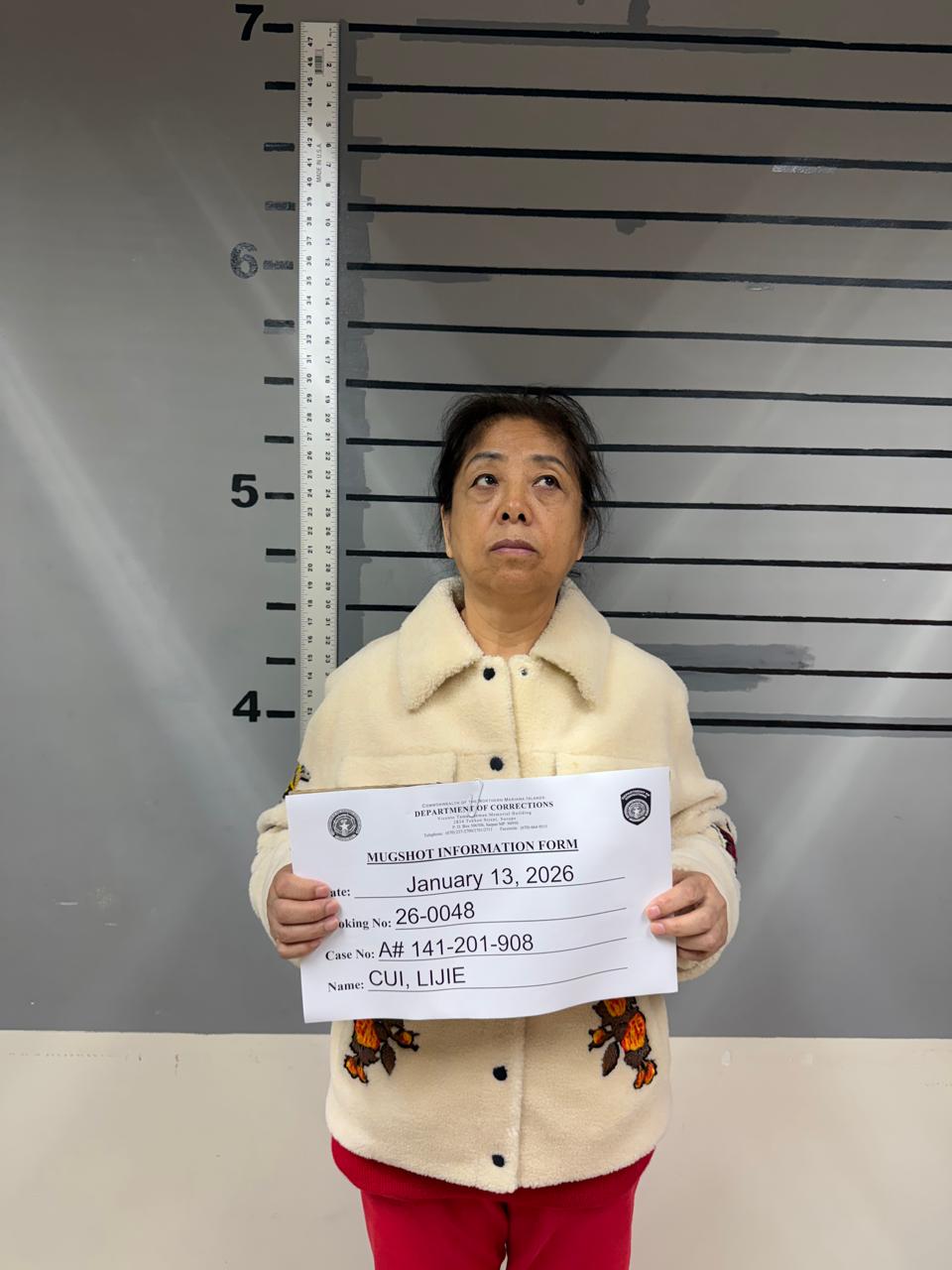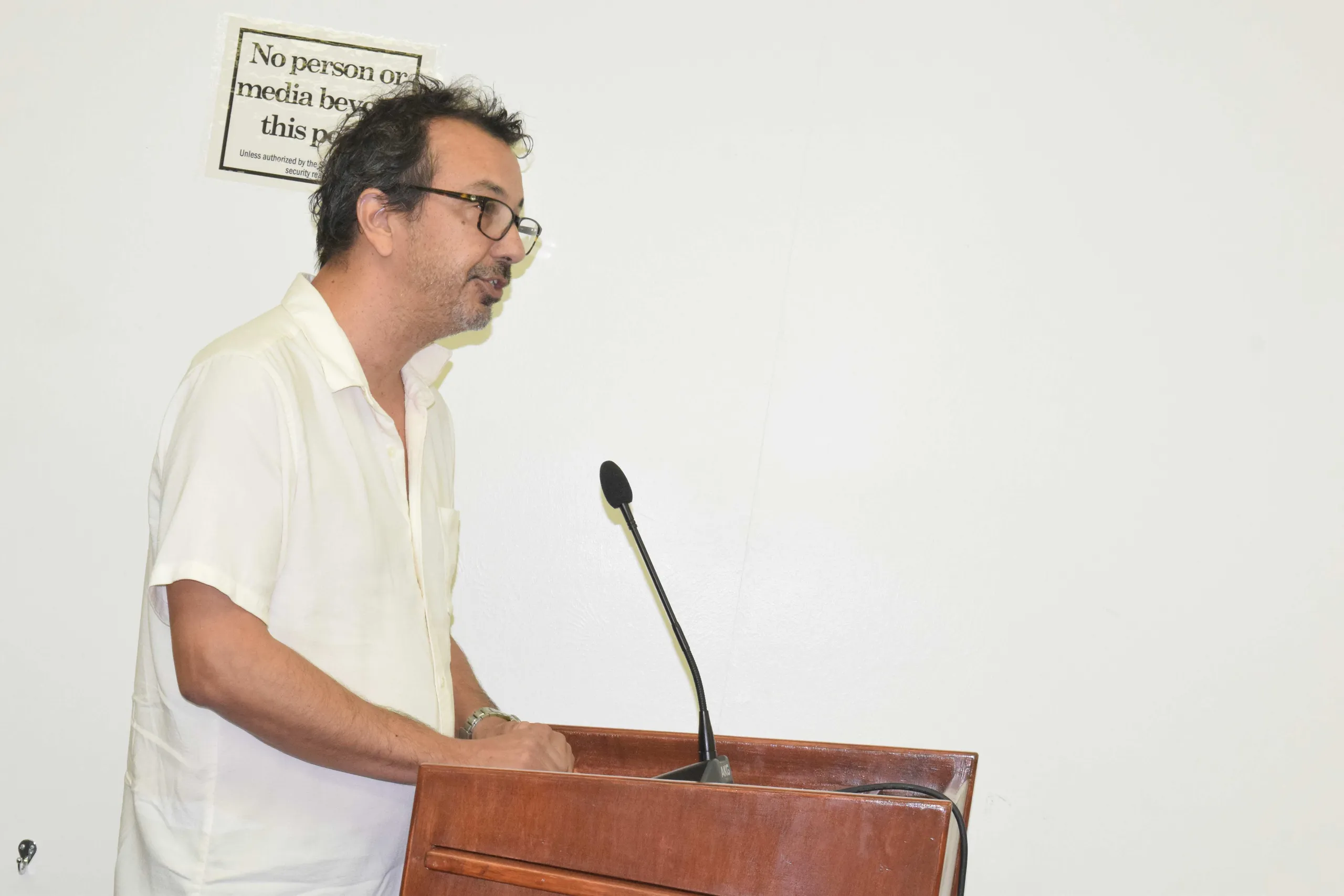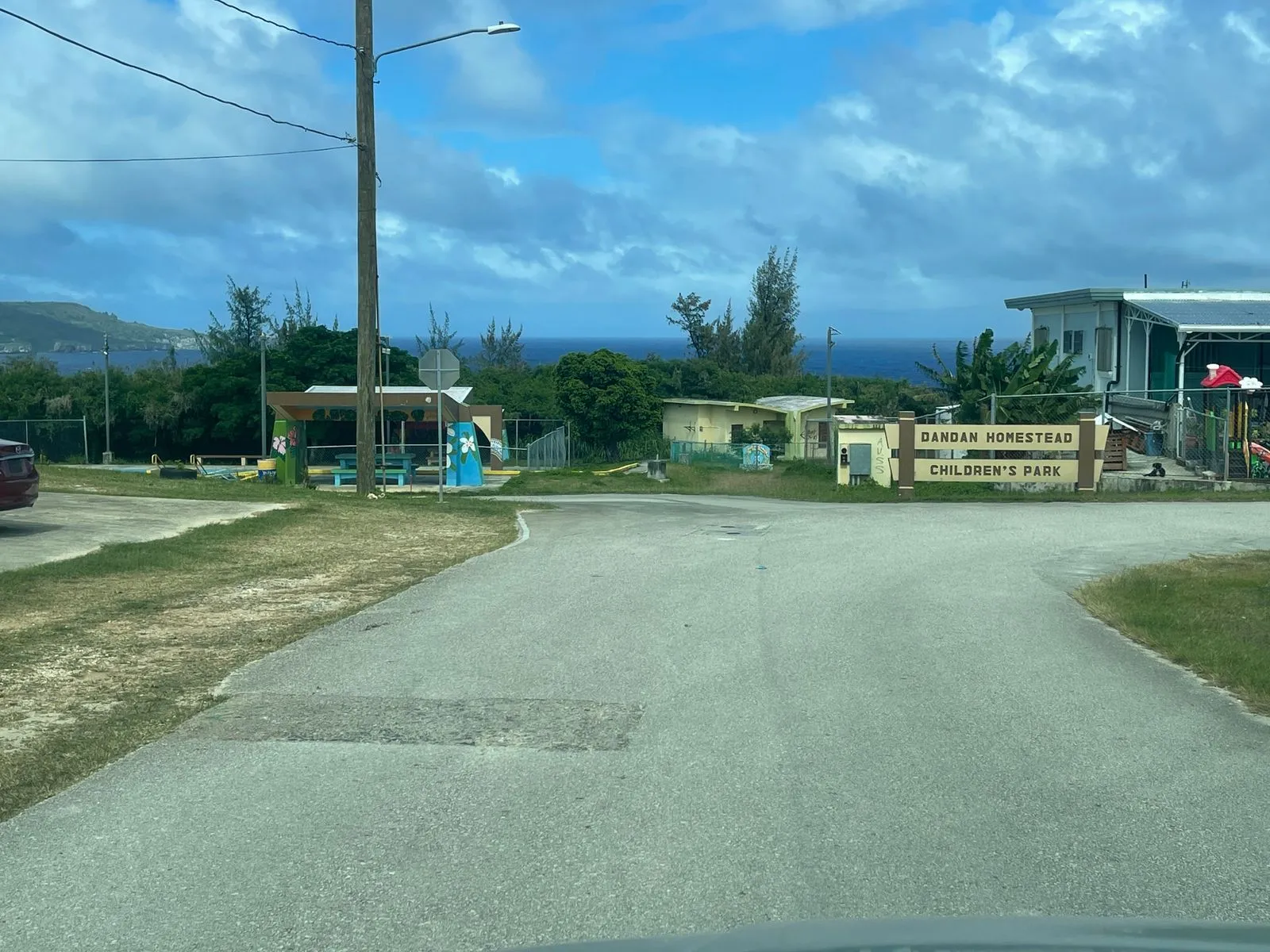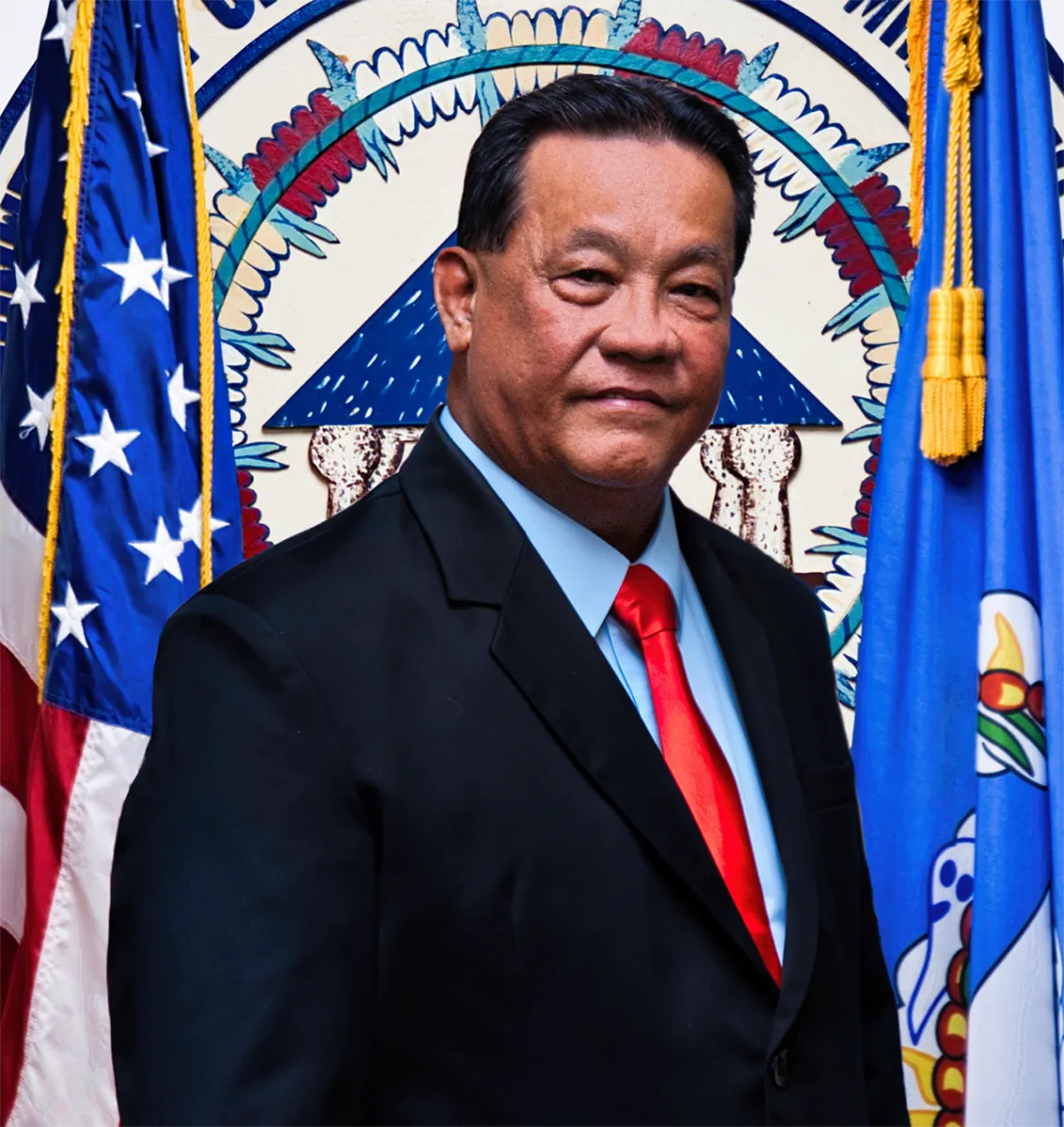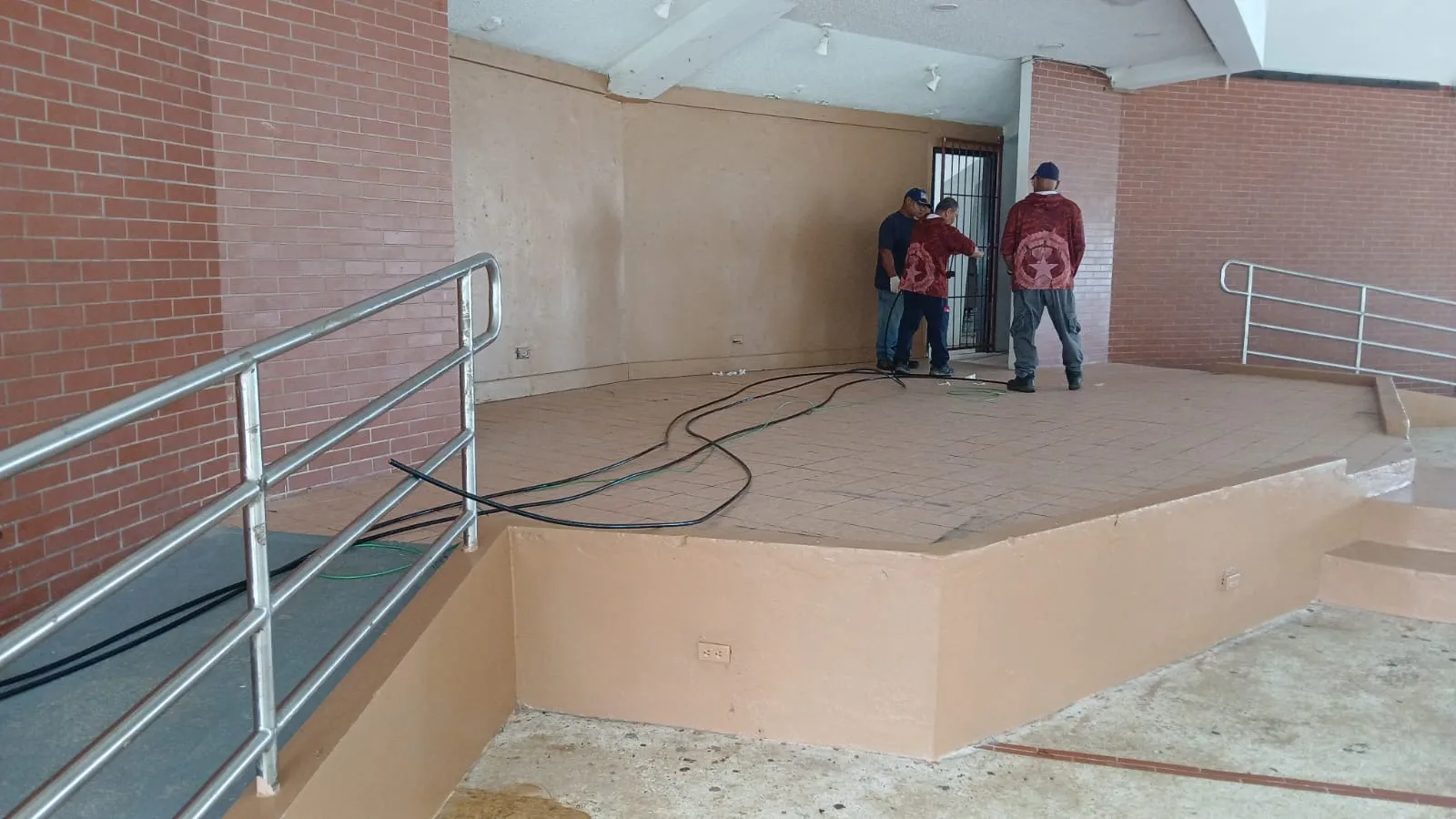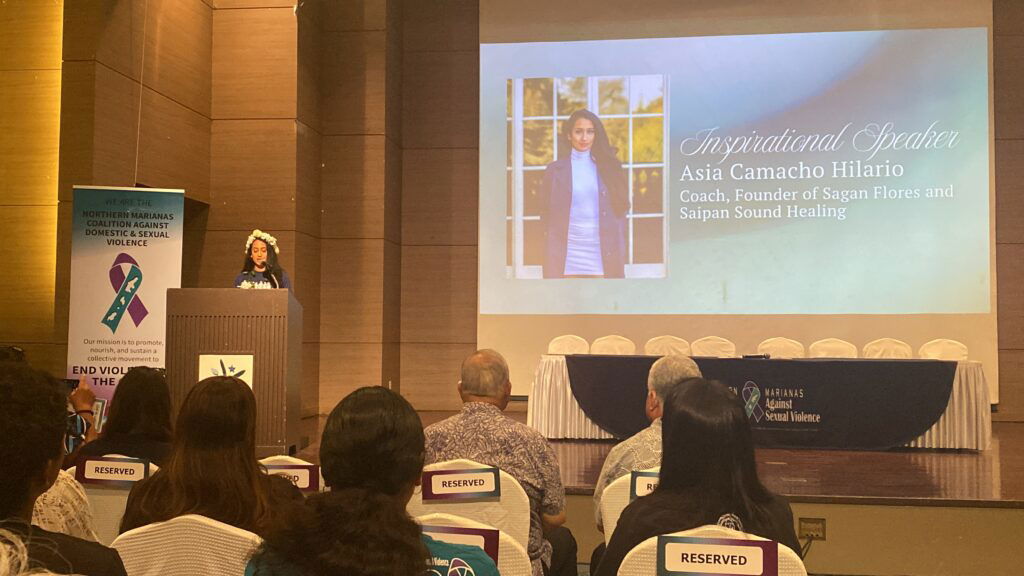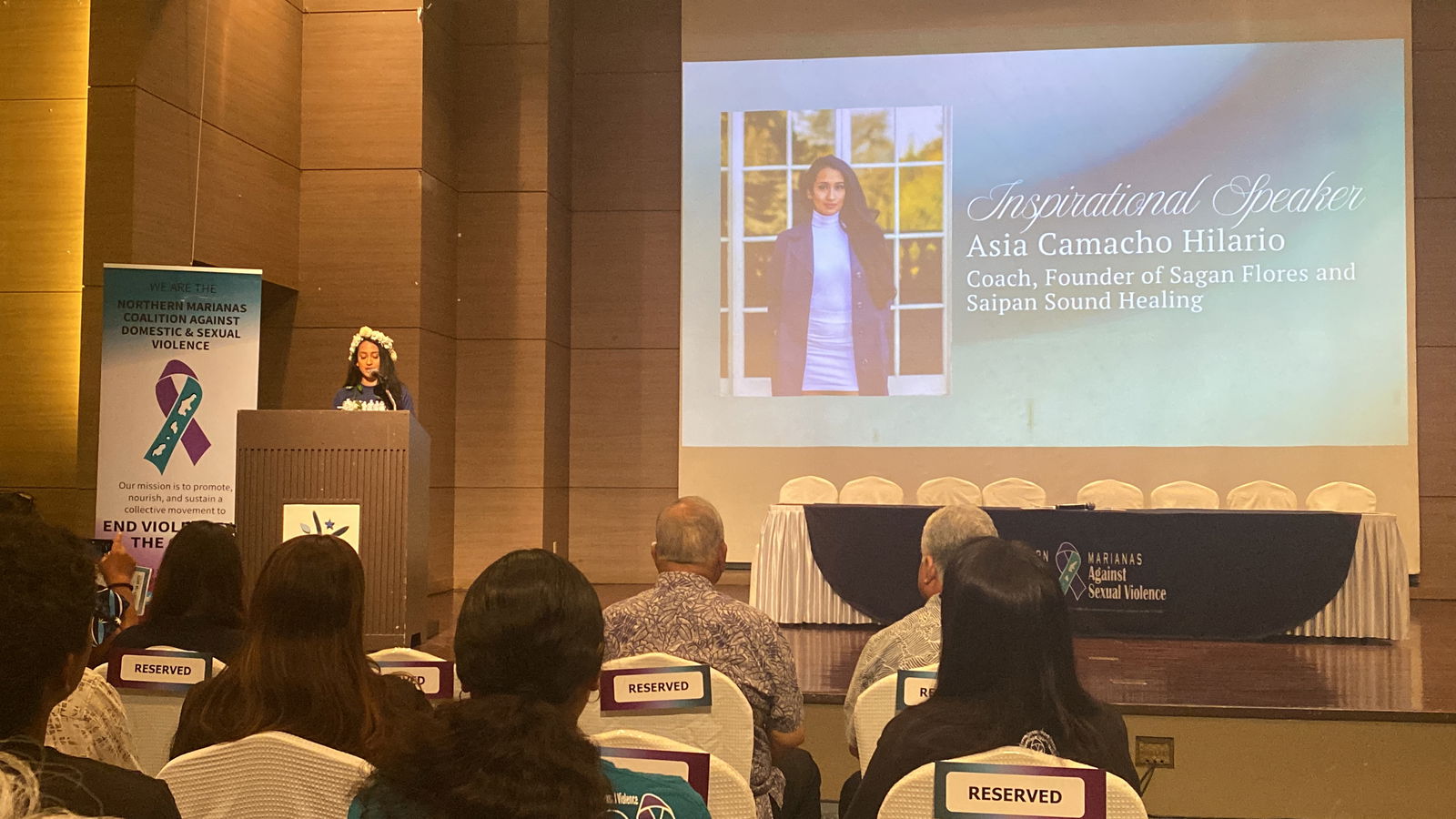
Asia Hilario talks about how therapy helped her redesign the trajectory of her life.
ADVOCATES, survivors, government officials and community members participated in Monday’s proclamation signing for April as Sexual Assault Awareness Month at the Saipan World Resort’s Taga Hall. The event was organized by the Northern Marianas Coalition Against Domestic and Sexual Violence, and the theme this year is “Solidarity for Safety.”
The coalition said its aim is to “stand in solidarity with survivors and work toward a future free from sexual violence.”
For the entire month of April, the coalition will conduct presentations, initiate the 30 Days of SAAM (Sexual Assault Awareness Month) social media challenge, and create “spaces for awareness, conversation, and change.”
At the proclamation signing, keynote speaker and entrepreneur Asia Hilario spoke about how therapy and seeking help for her trauma enabled her to live a “whole new life” after experiencing sexual abuse as a child.
“It cracked the door open to safety, to softness, to finally coming home to myself,” she said of her decision to see a mental health professional after reaching a “rock-bottom” point in her life.
Prior to therapy, she described herself as someone who was “hypervigilant” — to the extent that, even as an adult, she would push her nightstand in front of her bedroom door each night as a safety precaution against intruders.
“I didn’t trust anyone,” she said. “I always believed there was an ulterior motive if someone was kind or wanted to get close to me. I was hypervigilant, always scanning environments for potential threats. That’s how afraid I was of the world. I was taught that the world was a dangerous place, that closeness leads to harm, that I always have to be on guard.”
Hilario said she carried a sense of guilt and shame into her relationships and also engaged in self-destroying behavior.
“I did what many people in pain do. I lashed out, I got into fistfights, I drank to numb the numbness. I self-harmed,” she said.
The moment that pushed her to get therapy came when her partner’s phone died one night, and he didn’t answer her call.
She said she felt a sense of “panic” because she was “convinced something horrible happened.”
“Logic left the room,” Hilario said. “I wasn’t just worried, I was terrified. The more I didn’t hear from him, the more my mind spiraled. What if he got into an accident? What if something happened and I wasn’t there to help? What if I’m about to lose him? What if he was with a girl? What if he’s cheating on me? My body was stuck in flight or fight.”
Hilario said she wound up calling her partner over 30 times that evening.
She realized later that the issue wasn’t even centered on her partner or the dead phone. It was connected to her trauma.
“It was about every time in my life when I felt powerless, unprotected, and abandoned,” she said.
The next day, she called out of work to go to therapy — a day that “changed the trajectory” of her life.
With the help of a professional, she said she would come to understand her “triggers” and “patterns” and how she could overcome trauma.
“Most importantly, it helped me understand that I was not broken. I was wounded and wounds can be tended to, wounds can heal,” she said.
Hilario advocates for a different approach to how we view those who have experienced sexual assault.
“Survivors often carry names [that] trauma gave them: ‘broken,’ ‘damaged,’ ‘dirty,’ ‘unsafe,’ ‘victim.’ But healing begins when we rename ourselves, when we give ourselves a new identity,” she said.
“As for community support, we can offer survivors new names like ‘brave,’ ‘worthy,’ ‘valuable,’ ‘deserving.’ It is then that we can begin the collective work of removing shame. Healing becomes possible when we stop seeing trauma as something to hide, and instead as something we can hold together in unity.”


